Call for 2025 Award Nominations is open! Deadline: January 10, 2025
2024 National Award Recipients
American Feed Industry Association Award in Nonruminant Nutrition Research
Sponsored by: American Feed Industry Association
John R. Pluske, Australasian Pork Research Institute Ltd.

Dr John R. Pluske is a consultant, CEO and Chief Scientist of the Australasian Pork Research Institute Ltd., an Honorary Professorial Fellow at The University of Melbourne, Australia, and a Fellow of the Australasian Pig Science Association (2015). Dr Pluske holds a BSc (Agric) and a Ph.D. (The University of Western Australia). He has worked at universities in Australia, Canada and New Zealand, with sabbaticals at the University of Guelph and Kansas State University, as the Inaugural Fulbright Distinguished Chair in Agriculture and Life Sciences. Dr Pluske’s major research concerns nutrition and physiology of pigs. He has published more than 550 articles in the non-ruminant sciences. His research has surpassed 15,300 citations with a h-index of 56 (Google Scholar). Dr Pluske has supervised 30 PhD students, MSc students and post-doctoral scholars, and mentored many scientists. He has given in excess of 115 invited addresses, and obtained research funding nearing (AU) $12 million.
American Feed Industry Association Award in Ruminant Nutrition Research
Sponsored by: American Feed Industry Association
Kristin Hales, Texas Tech. University

Dr. Kristin Hales currently holds the Thornton Distinguished Chair in the Department of Animal and Food Science at Texas Tech University. She has used her skills as a ruminant nutritionist to impact several critical areas in the beef industry. A major testament to the beef industry’s acceptance of her research is her ability to secure financial support, over $2.2 million in external funding in just four years. Over the course of her career Dr. Hales and colleagues have published a remarkable 105 peer-reviewed publications. She has served as the major advisor for 4 Ph.D. and 6 M.S. students and served on the committees of 18 other graduate students. Dr. Hales has served as Associate Editor and acting Editor-In-Chief for Applied Animal Science and is currently the President of the American Society of Professional Animal Scientists and President of the Plains Nutrition Council. Her and her husband Chris live in Lubbock, Texas and are avid bass fishermen.
Animal Growth and Development Award
Sponsored by: dsm-firmenich Animal Nutrition and Health
Kolapo M. Ajuwon, Purdue University
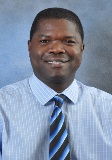
Dr. Kolapo M. Ajuwon received undergraduate degree in Animal Science from Obafemi Awolowo University, Ile-Ife, Nigeria; M.S. and Ph.D. degrees from Purdue University, West Lafayette, Indiana. He is currently a professor in the Department of Animal Sciences at Purdue University. Dr. Ajuwon has developed a recognized research program that focuses on understanding the fundamental mechanisms that regulate animal growth and nutrient utilization. His current research efforts are directed towards investigating the molecular mechanisms of adipose and gut tissue development and function and the underlying biology of nutrient utilization in normal and stressful environments. His work has dual application to animal growth and development and human health, especially gut health and the development of obesity and insulin resistance in adipose tissue. He has published over 100 refereed papers and received funding from federal, state and industry sources to support his program.
Animal Industry Innovation Award
Sponsored by: Zoetis Inc.
Antonio Faciola, University of Florida

Dr. Antonio Faciola earned B.S. and M.S. degrees in Animal Sciences from the Federal University of Viçosa, Brazil, and a Ph.D. from the University of Wisconsin. He is currently an Associate Professor and Graduate Program Director at the University of Florida. The overarching goal of his lab is to improve the efficiency of nutrient utilization in ruminants. Since 2013, he has secured over 6 million dollars in funding, published 93 peer-reviewed articles, and presented over 40 invited talks in 10 countries. He teaches undergrad and grad students and has mentored 10 MS students, 11 Ph.D. students, 30 visiting scholars, 7 postdocs, and 87 undergrads in his lab. He has mentored individuals from 23 countries and received several awards including: the 2018 Lallemand Forward Award for Scientific Excellence, the 2019 Mentor of the Year at UF Animal Sciences, the 2020 Cargill Animal Nutrition Young Scientist Award, and the 2020 Undergraduate Faculty Mentor of the Year at the University of Florida.
Animal Management Award
Andy D. Herring, Texas A&M University
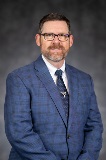
Dr. Andy D. Herring is John K. Riggs ’41 Beef Cattle Professor in the Department of Animal Science at Texas A&M University and currently serves as Associate Head and Extension Leader. He has been a combination teaching, research, and at times Extension animal science faculty member since 1994, and ASAS member since 1989. Dr. Herring teaches classes in beef cattle production and management and conducts applied research regarding ruminant livestock production systems with primary emphasis on genetic influences and interactions affecting beef value chains. His professional passion is to inspire students and producers to become life-long learners and consider whole systems thinking for livestock production. He incorporates classical and current industry issues and research findings into his classes and utilizes a variety of teaching technologies and strategies. He has trained or co-trained 14 Ph.D. and 43 Master students, 80% of whom are directly involved in agricultural industries.
Animal Physiology and Endocrinology Award
Sponsored by: James W. Lauderdale Appreciation Club
Matthew B. Wheeler, University of Illinois at Urbana-Champaign
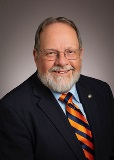
Dr. Matthew B. Wheeler obtained B.S. and M.S. degrees from the University of California-Davis and a Ph.D. in 1986 from Colorado State University. Wheeler was an NIH postdoctoral research associate at the University of Virginia and the University of Wisconsin-Madison from 1986 to 1989, studying granulosa cell function and reproductive endocrinology. Since 1989, he has been a faculty member in Animal Sciences at the University of Illinois at Urbana-Champaign and is currently Professor of Animal Sciences, Bioengineering, and Veterinary Clinical Medicine. Dr. Wheeler's early work was the development and characterization of GM swine to improve livestock productivity. In the past 10 years, he has developed novel approaches to non-invasively analyze the viability of gametes and embryos to improve pregnancy rates. Dr. Wheeler is currently disseminating embryo technologies on four continents, including North and South America, Africa, and Asia. His research has been funded by USDA, NIH, DOD, and NSF.
Armstrong Leadership Award
Sponsored by: Armstrong Leadership Fund
Sushil Paudyal, Texas A&M University

Dr. Sushil Paudyal joined the Department of Animal Science at Texas A&M as an Assistant Professor in January 2019. Dr. Paudyal received a bachelor’s degree in veterinary science and animal husbandry from Tribhuvan University in Nepal, a master’s degree in animal science from the Department of Agricultural Science at West Texas A&M University and his doctoral degree from the Department of Animal Sciences at Colorado State University, specializing in dairy herd management. Dr. Paudyal’s research interest focus on using herd and animal level data for decision making in dairy farms. His research utilizes innovative technologies to optimize production, health, and well-being of cattle.
ASAS Fellow: Administration Category
Sponsored by: American Society of Animal Science
J. Ernest Minton, Kansas State University
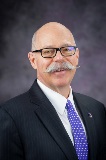
Dr. J. Ernest (Ernie) Minton serves as Dean of the College of Agriculture and Director of Research and Extension at Kansas State University. He previously served as Associate Dean for Research and Graduate Programs and Associate Director of the Kansas Agricultural Experiment Station for 10 years. Prior to his college administrative positions, Dr. Minton served in administrative roles in the Department of Animal Sciences and Industry where he was a faculty member for 25 years. In total, he has 28 years of administrative experience serving animal agriculture. As Dean, Dr. Minton serves as chief administrative officer and strategic leader for the largest College at Kansas State University. He is responsible for an annual budget of $175 million and oversees supervision of 2,153 total employees including 280 faculty in 10 departments. During his tenure, research funding in the college has more than doubled accounting for over 53% of all research expenditures at the University.
ASAS Fellow: Extension Category
Sponsored by: American Society of Animal Science
Paul A. Beck, Oklahoma State University

Dr. Paul A. Beck was raised on a wheat and livestock farm near Guthrie, Oklahoma. He received B.S. and M.S. degrees in Animal Science from Oklahoma State University in 1990 and 1993, respectively, his Ph.D. in Animal Science from the University of Arkansas in 2003 and a MBA from Southern Arkansas University in 2017. He currently full professor and Dennis and Marta White Endowed chair at Oklahoma State University with a 75% extension and 25% research appointment. Dr. Beck is a highly productive and respected Extension State Specialist with emphasis on beef cattle nutrition and management. Dr. Beck provides leadership to successful extension programs including the Cow/Calf Corner Newsletter, the Departmental Beef Advisory Board, in-service programs, along with statewide and multistate conferences and field days. He has also been highly effective in securing extramural funding for his extension and research programs with over $2.1 million in grants over the past five years.
ASAS Fellow: Industry Category
Sponsored by: American Society of Animal Science
Stephen L. Armbruster, Stephen Armbruster Consulting, Inc.
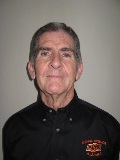
With a Ph.D. in Ruminant Nutrition and experience as an Extension Specialist, Stephen L. Armbruster formed a consulting firm in 1981 to focus on feedlot cattle nutrition and management. He soon distinguished himself as one of the premier independent consultants. Dr. Armbruster was a catalyst for using computer technology to make decisions, instrumental in implementing clean-bunk plans, an early herald of cattle comfort, and a pioneer of innovative starting programs. Known as a consummate educator, he taught animal husbandry to individuals with little or no livestock experience. He mentored undergraduate and graduate students through job shadowing and influenced young nutritionists while serving on advisory boards. Dr. Armbruster is recognized by academicians, industry leaders, feedlot employees, and his peers as a gentleman of impeccable integrity. Many will tell you that no one taught them more about the industry or had greater influence on who they became as a professional than Steve.
ASAS Fellow: Research Category
Sponsored by: American Society of Animal Science
Gerald C. Shurson, University of Minnesota

Dr. Gerald C. Shurson’s diverse, ever evolving, and internationally recognized research program has had a profound impact on the global food animal industry during his distinguished 34-year academic career in the Department of Animal Science at the University of Minnesota. He is perhaps best known for his leadership in research and education that led to the adoption and use of corn dried distillers grains with solubles in swine and poultry diets in the U.S. and in more than 50 countries around the world. In addition, his highly collaborative research program also includes 1) understanding impacts of feeding oxidized lipids on animal health and performance, 2) using integrated systems biology approaches to determine mechanisms of nutritional responses, 3) ground-breaking discoveries and co-development of a patented surrogate virus assay to evaluate mitigation strategies for African swine fever virus in feed, and 4) evaluating feeding strategies to reduce environmental footprint of animal production.
ASAS Fellow: Teaching Category
Sponsored by: American Society of Animal Science
Rosemarie A. Nold, South Dakota State University
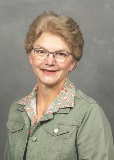
Dr. Rosie Nold is a Professor and Assistant Department Head of the South Dakota State University Animal Science Department & Undergraduate Curriculum coordinator. In all her classes, students learn to focus on “real world” goals while becoming active, engaged participants in their educational journey. For example, the nearly 200 students/semester who take her Introduction to Animal Science class are encouraged to both “be there” in class and know the information well. Dr. Nold impresses upon her students that real-world decisions are made by those who show up, even if they don’t have all of the answers. Dr. Nold schedules a mandatory meeting with every student who takes her class, and offers unique experiential learning opportunities to position students for greater understanding of agriculture. Dr. Nold’s educational excellence extends far beyond the classroom. She is the founding member & moderator for the National 4-H Livestock Quiz Bowl & Chairs the National 4-H Livestock Skillathon Committee.
ASAS Retiree Service Award
Sponsored by: American Society of Animal Science
Robert P. Wettemann, Oklahoma State University
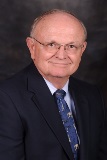
Dr. Robert P. Wettemann obtained a B.S. at the University of Connecticut (1966), and a M.S. (1968) and Ph.D. (1972) at Michigan State University. He was appointed assistant professor in the Department of Animal Science at Oklahoma State University in 1972, and a Regents Professor Emeritus 2014. His research focused on endocrine mechanisms controlling reproduction of cattle. This research established use of body condition to evaluate nutrition of beef cows. He taught reproductive physiology and animal growth, and has coauthored more than 650 scientific publications. He participated in 53 annual meetings of ASAS. He received the Physiology and Endocrinology Award, Animal Management Award, Casida Award, Morrison Award, the Distinguished Service Award by the Southern ASAS, was President of ASAS and ARPAS, and is an ASAS Fellow. He and his wife, Grace, have a son, two daughters, and five grandchildren.
ASAS Young Scholar Award
Sponsored by: American Society of Animal Science
Modoluwamu Idowu, West Virginia Univesity

Modoluwamu Idowu is a Ph.D. candidate in Animal and Nutritional Sciences at West Virginia University. His academic journey began with a B.S. in Animal Breeding and Genetics in Nigeria, followed by an M.S. degree in Animal Nutrition and Biotechnology at Fort Valley, Georgia, USA. In his doctoral research, Modoluwamu focuses on the application of cutting-edge omics techniques in the field of ruminant nutrition. Through advanced biotechnological approaches, he aims to discern how these interventions influence immune response, hepatic nutrient metabolism, and overall well-being in ruminants. With a commitment to advancing the field, Modoluwamu's research contributes significantly to evidence-based strategies for optimizing ruminant nutrition and fostering sustainable livestock production. As an accomplished scholar, he has authored or co-authored 19 research publications and 20 research abstracts, showcasing his expertise and dedication to the advancement of animal and nutritional sciences.
Sponsored by: American Society of Animal Science
Riley D. Messman, Oklahoma State University
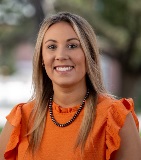
Dr. Riley D. Messman is an Assistant Professor in Animal and Food Sciences at Oklahoma State University. She received a B.Sc. (2017) at the University of Missouri and M.Sc. (2020) and Ph.D. (2023) at Mississippi State University. During her doctoral program she focused on the intricacies of microbial dysbiosis in the bovine dam's reproductive tract at parturition and its consequential impact on neonatal immune function and microbial inoculation. To date she has published 1 book chapter, 10 journal articles, and 18 research abstracts. Dr. Messman’s research program focuses on unraveling specific changes in the maternal reproductive tract microbiome that influence offspring's health and performance. Her goal is to integrate research findings into her teaching, providing valuable insights to veterinarians, producers, and industry leaders on innovative management practices to improve overall herd health.
Sponsored by: American Society of Animal Science
Anna Goldkamp, Oklahoma State University
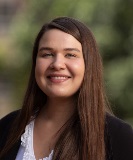
Dr. Anna Goldkamp received a B.S. in Animal Science from the University of Missouri-Columbia in 2017. She received a M.S. in Animal Science from Oklahoma State University in 2020. Her M.S. research compared fetuses produced via artificial insemination and in vitro fertilization in bovine tissues, leading to the first transfer RNA expression atlas in bovine. In December of 2023, she obtained her Ph.D. at Oklahoma State University. Her Ph.D. research investigated how tRNA abundance acts as a source of genetic variation which can dictate translational efficiency and proteome composition. She has published 4 first author papers and coauthored 3 additional papers. She has been recognized internationally through Advances in Genome Biology and Technology, the Neal A. Jorgenson Genome Award1 to PAG30, the Next Generation Leadership Award to AGBT-AG 2023, the 2023 International Society of Animal Genetics meeting in Cape Town, South Africa, and the 2024 ASAS Southern Section Emerging Scholar Award.
Sponsored by: American Society of Animal Science
Larissa Becker, Kansas State University
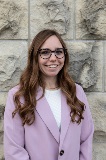
Larissa Becker grew up in the swine industry through her family’s commercial swine operation and involvement in the show pig industry. She received her B.S. degree in Animal Science from Iowa State University in 2020. Her involvement in research as an undergraduate and through internships helped develop her passion for swine nutrition which ultimately led her to graduate school. Larissa completed her M.S. degree in swine nutrition from Kansas State University in 2021 and is currently a Ph.D. candidate. Her research during her Ph.D. program has been diverse given her career aspirations as a production nutritionist. She has conducted research with nursery pigs evaluating clay-based feed additives during naturally occurring health challenges, the effects of an active form of vitamin D, and evaluated the effects of folic acid on growth performance and survivability of nursery pigs. Currently, she is evaluating a novel open-farrowing concept with a large swine production system.
Sponsored by: American Society of Animal Science
Sangwoo Park, University of California, Davis"

Sangwoo Park is currently a Ph.D. candidate in the Animal Biology Graduate Group at the University of California, Davis under the guidance of Dr. Yanhong Liu. His research focused on improving growth and intestinal health of weaned pigs through nutritional intervention. His current research extends to investigating nutritional intervention on disease resistance as well as performance in weaned pigs using a challenge model. He uses applied science techniques to understand the impact of nutritional intervention on pig gut health through complex interactions between stress, nutrients, immune responses, and metabolic changes and how these interactions affect the growth and physiological characteristics of pigs after weaning. Sangwoo Park has published 9 peer-reviewed papers and co-authored 9 others.
Sponsored by: American Society of Animal Science
Keara O'Reilly, Texas A&M University
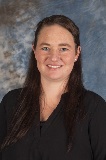
Keara O'Reilly is a Postdoctoral Research Associate in the Department of Animal Science at Texas A&M University. She completed her bachelor’s degree in Animal Science and master’s degree in Animal Nutrition at the University of Pretoria in South Africa. Keara continued with her studies at Texas A&M University, where she recently completed her Ph.D. degree in Animal Science, focusing on Ruminant Nutrition. Keara played an active role in teaching during her Ph.D. and received the Vice Chancellor’s and the Departmental Awards for Graduate Student Teaching. Keara’s Ph.D. research focused on investigating the physiological mechanisms that influence feed efficiency in cattle. During her PhD. she presented abstracts at multiple Animal Science meetings and has been involved in various research projects. Keara would like to remain in academics where she can continue to teach and mentor undergraduate and graduate students and conduct research that contributes to sustainable livestock production.
Bouffault International Animal Agriculture Award
Sponsored by: Center for Regulatory Services, Inc.
Reinaldo F. Cooke, Texas A&M University

Dr. Reinaldo F. Cooke serves Texas A&M University as the Burkhart Endowed Professor for Beef Cattle Research. Dr. Cooke established an academic program to develop and disseminate management systems that improve production efficiency in US and international beef systems. He has made meritorious scientific contributions to beef production via teaching, research, and outreach engagement in developing and developed countries. Dr. Cooke has published more than 200 journal articles and secured $9 mi in funding, where 70 articles and $4 mi were directly resultant from his international activities. Dr. Cooke has mentored and taught numerous international students via traditional and online programs, and has given more than 100 invited presentations in international meetings across the globe. Dr. Cooke serves as Section Editor for JAS since 2014, and received numerous awards from ASAS and US universities recognizing his academic contributions to advance beef production nationally and internationally.
Corbin Award in Companion Animal Biology
Sponsored by: Jim Corbin Award Fund
Elisabeth Huff-Lonergan, Iowa State University

Dr. Elisabeth Huff-Lonergan is an ASAS Fellow who demonstrates service to the companion animal industry through her innovation in teaching and research. Her work to develop a 'one of a kind' undergraduate class introduces students to the pet food industry and provides students exposure to careers they would likely not have been aware of. The class, titled 'Food Processing for Companion Animals,' has been taught to juniors and seniors in Animal Science for over ten years. Additionally, the course is a core class in a new Feed Technology minor at Iowa State. Agricultural and biosystems engineering and animal science students are entering the field through that minor. Her research teams have advanced the understanding of how protein oxidation in raw materials influences nutrient quality and digestibility in pet foods.
Distinguished Teacher Award
Sponsored by: Purina Animal Nutrition. LLC/Land O'Lakes, Inc.
Donald Mulvaney, Auburn University
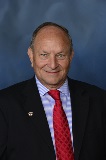
In serving as developer or instructor of record for over 45 courses on campus, the college Coordinator of Student Development, Chair of the Campus Teaching Effectiveness Committee, and by peer mentoring to facilitate adoption of state-of-the-art pedagogies, Dr. Don Mulvaney’s impact on teaching is far-reaching. His passion for teaching and learning through student research contributed to the creation of the Southern Section UG research paper competition. From active learning classrooms to curricula development, continual improvement via course redesign, extracurricular and experiential state-of-the-art teaching, mentoring, and adaptive pedagogies, to outreach-oriented leadership and livestock educational programming, and pursuit of scholarship in teaching and learning, Don has positively impacted thousands of students and stakeholders by empowering them to thrive and succeed in life. Dr. Don Mulvaney is an appropriate recipient of the American Society of Animal Science Distinguished Teacher Award.
Early Career Achievement Award
Sponsored by: American Society of Animal Science Foundation
Luiz F. Brito, Purdue University
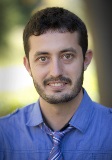
Dr. Luiz Brito completed his doctoral training at the University of Guelph in Canada. In 2018, he joined Purdue University and he is now an Associate Professor of Quantitative Genetics and Genomics. His research program focuses on the genomics of livestock behavior, welfare, and resilience and on the development of selection methods and approaches to enable efficient incorporation of these traits into livestock breeding programs. Since joining Purdue University in 2018, he and his collaborators have received over $16.6 million in external funding, have published more than 190 refereed articles, 200+ abstracts, and 4 book chapters, and his work has been cited more than 4,000 times. At Purdue, he has also been involved in the mentoring of more than 40 graduate students and postdocs and teaches an undergraduate and a graduate course in the areas of animal breeding and quantitative genomics.
Equine Science Award
Sponsored by: Zinpro Corporation
Krishona Martinson, University of Minnesota
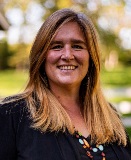
Dr. Krishona Martinson has built a highly respected and impactful research and Extension program at the University of Minnesota, reaching millions of horse owners and professionals annually. Best known for her expertise in horse forage utilization, she has secured almost $2 million in grants and gifts, has published 68 journal and 70 Extension articles, 170 abstracts/proceedings, 4 book chapters, and successfully advised and trained 15 MS, Ph.D., and post-docs, and 31 undergraduate interns. Her diverse portfolio of Extension programming includes in-person programs, website information, an e-newsletter, online certificate courses, a Facebook page, YouTube channel, mobile apps, and infographics. Dr. Martinson has created and nurtured a strong “academic family tree” with many of her past advisees actively training and educating the next generation of the equine industry. Dr. Martinson is truly an innovative and effective member of the equine industry.
Extension Award
Sponsored by: Zoetis Inc.
Jason W. Ross, Iowa State University

Dr. Jason W. Ross is a Professor and Chair in the department of Animal Science and previous Director of the Iowa Pork Industry Center (IPIC) at Iowa State University. During his leadership of the IPIC, Dr. Ross has led comprehensive and integrated applied research and extension effort on behalf of the U.S. swine industry. Additionally, with the leadership of Dr. Ross, the IPIC and partnering members led the national effort in creating and distributing critical, science-based information needed during short window to provide industry guidance for feeding late-finishing hogs to expand the marketing window and avoid euthanasia during the packing plant restrictions caused by COVID-19 during the Spring of 2020. Dr. Ross’s program has established national and international rapport with academic colleagues, pork industry leaders, and allied industry partners that has enabled the translation of new knowledge into industry practices.
Gary L. Cromwell Award for Minerals Nutrition
Sponsored by: Gary L. Cromwell Appreciation Club
Stephanie L. Hansen, Iowa State University
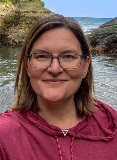
Dr. Stephanie L. Hansen, has made significant contributions to the field of mineral nutrition of domestic livestock. Dr. Hansen joined Iowa State University in 2009 and her program focuses on refining mineral requirements of growing and finishing cattle. Outreach of her work contributes to the success of the beef industry. She has been honored with college, university, regional, and national animal science early and mid-career achievement awards. The impact of her research is clear in the extensive citations of her work in the most recent beef cattle (2016) and dairy cattle (2021) nutrient requirement guidelines. Dr. Hansen’s research program at Iowa State University focuses on 1) determining trace mineral and vitamin supplementation to optimize beef cattle growth, calf health, and response to stress and 2) novel feedstuff evaluation. Dr. Hansen has garnered over 11 million dollars in extra mural funds, with a diverse funding portfolio of industry, commodity and federal (NIFA) support.
H. Allen Tucker Appreciation Club Graduate Student Travel Scholarship
Sponsored by: H. Allen Tucker Appreciation Club: Graduate Student Travel to Annual Meeting
Vinicius de Souza Izquierdo, University of Florida

Vinicius de Souza Izquierdo obtained his Doctor in Veterinary Medicine degree from the Federal University of Pelotas (Brazil) in 2019 and his Master of Science degree in Beef Cattle Nutrition and Reproduction from the same institution in 2021. Thereafter, Vinicius joined the beef cattle research and extension group, under the supervision of Dr. Philipe Moriel, at the University of Florida–Range Cattle Research and Education Center (RCREC; Ona, FL) in 2 occasions: first, as a Research Scholar from July 2021 until January 2022, and more recently, as a Ph.D. student since May 2022. His research focuses on nutritional and management practices to mitigate heat stress in grazing Bos indicus-influenced beef cattle in tropical and subtropical environments and its consequences to offspring growth, reproduction, and health. During his time in graduate school, Vinicius has authored or co-authored 8 peer-reviewed journal articles and 13 abstracts.
Innovation in Animal Breeding and Genetics Award
Sponsored by: American Society of Animal Science
Daniela Lourenco, University of Georgia
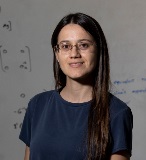
Dr. Daniela Lourenco is an Associate Professor in Animal Breeding, Genetics, and Genomics at The University of Georgia. Her research has focused on improving livestock production, health, fitness, and efficiency using genomic information, developing statistical methods and software for genetic evaluation and genome-wide association, and addressing issues related to using big data and multi-omics information. She has been actively working with several US and international breeding companies and breed associations. Her multispecies genetic research program has secured over $10 million in grant funds from government and private sources since 2015. Dr. Lourenco oversees a team of 20 graduate students, postdocs, and researchers and received the UGA Fred C. Davis Early Career Award in 2020. She has authored over 275 conference proceedings, 165 peer-reviewed publications, including 40 in the Journal of Animal Science, and 85 invited talks on five continents. She has taught several short courses and trained geneticists globally.
Joseph P. Fontenot Travel Scholarship Award
Sponsored by: Joseph P. Fontenot Appreciation Club
Modoluwamu Idowu, West Vriginia University

Modoluwamu Idowu is a Ph.D. candidate in Animal and Nutritional Sciences at West Virginia University. His academic journey began with a B.S. in Animal Breeding and Genetics in Nigeria, followed by an M.S. degree in Animal Nutrition and Biotechnology at Fort Valley, Georgia, USA. In his doctoral research, Modoluwamu focuses on the application of cutting-edge omics techniques in the field of ruminant nutrition. Through advanced biotechnological approaches, he aims to discern how these interventions influence immune response, hepatic nutrient metabolism, and overall well-being in ruminants. With a commitment to advancing the field, Modoluwamu's research contributes significantly to evidence-based strategies for optimizing ruminant nutrition and fostering sustainable livestock production. As an accomplished scholar, he has authored or co-authored 19 research publications and 20 research abstracts, showcasing his expertise and dedication to the advancement of animal and nutritional sciences.
L.E. Casida Award
Sponsored by: L.E. Casida Award Fund
Gary L. Williams, Texas A&M AgriLife Research/Texas A&M University
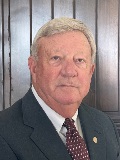
Dr. Gary L. Williams is Regents Fellow, Texas A&M AgriLife Research Senior Faculty Fellow, and Professor Emeritus, Texas A&M AgriLife Research-Beeville and the Department of Animal Science, Texas A&M University. Williams is nationally and internationally recognized for his research in bovine reproduction, including the neuroendocrinology and physiology of suckling-mediated anovulation, the role of dietary fat intake/metabolism in regulating postpartum ovarian physiology, and the development of Bee Synch for synchronization of ovulation of Bos indicus-influenced cattle. Moreover, his laboratory has been the recognized authority on neuroendocrine signaling pathways controlling the nutritional programming of puberty in the beef heifer and the role of leptin. Williams’ research has also made significant contributions to the neuroendocrinology of seasonal reproduction in the mare and methodologies for its control. He has successfully mentored 44 M.S., Ph.D. and postdoctoral trainees.
Meats Research Award
Sponsored by: Elanco Animal Health
Ranjith Ramanathan, Oklahoma State University
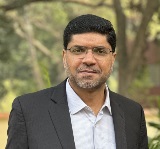
Dr. Ranjith Ramanathan has been a faculty member in the Department of Animal and Food Sciences at Oklahoma State University since 2012. Dr. Ramanathan’s research focuses on fundamental and applied factors that influence fresh meat quality, specifically postmortem biochemistry and meat color. Dr. Ramanathan has secured a total of $6.8 million in research grants. In addition, he has published 100 peer-reviewed journal articles and 155-refereed abstracts. Dr. Ramanathan has mentored 19 graduate students as a chair, served on 54 M.S./Ph.D. committees as a member, and mentored 32 undergraduate research scholars. Dr. Ramanathan has given 46 invited talks in 12 states and 4 countries. He has been recognized by the American Society of Animal Science, the United States Department of Agriculture-Association of Public Land Grant Universities, the American Meat Science Association, the American Chemical Society, and NACTA for his teaching and research excellence.
Morrison Award
Sponsored by: F.B. Morrison Fund
Ronald D. Randel, Texas A&M AgriLife Research/Texas A&M University
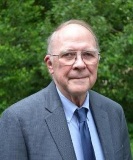
Dr. Ronald D. Randel, a world-renowned authority on beef cattle reproductive physiology and endocrinology, was born in Kansas. He graduated from high school in Redwood City, CA. After a brief time at Kansas State, Ron served 4 years in the Navy. He earned a B.S. degree in Animal Science at Washington State (1965). Under Dr. Ralph Erb's mentorship, Ron earned the Ph.D. degree in Animal Physiology at Purdue (1971). In 1971, Ron joined the U.S. Range Livestock Experiment Station in Miles City, MT as a Research Scientist. In 1974, he accepted an Associate Professorship at Texas A&M University's Overton Research Center. He advanced to the rank of Full Professor in 1978 and is a Senior Faculty Fellow and a Regents Fellow. He has been a Fullbright Fellow and received the ASAS Physiology and Endocrinology Award and the Casida Award. Dr. Randel and his wife Colleen reside in Tyler, Texas. Their son, Lowell, daughter-in-law, Shelly, and granddaughters, Katelyn and Paige, reside in Lorton, Virginia.
President's International Award
Sponsored by: James Sartin Appreciation Club
Gerald E. Lobley, The Rowett Institute, University of Aberdeen, UK

Dr. Gerald E. Lobley gained his BSc (Biochemistry) and Ph.D. from the University of Birmingham, UK. His career move to the Rowett Institute (Scotland) allowed both direct and collaborative studies across a range of species including cattle (bulls, steers, dairy cows), sheep, lactating goats, pigs, cats, rodents and humans. The focus was on the impact of nutrition on animal production and mammalian health. The approaches involved use of radio- and stable-isotopes to monitor protein turnover, urea kinetics and amino acid metabolism at both the whole body and tissue level, the latter often involving the trans-organ arterio-venous technique. Although these studies have involved a range of individual amino acids, a recurring theme is methionine metabolism, with emphases on involvements in transmethylation and homocysteine kinetics, plus metabolism of methionine substitutes, notably HMTBA and DL-Met products. Overall, his studies have resulted in more than 200 papers and review articles.
Wilson G. Pond International Travel Award
Sponsored by: Wilson G. Pond Appreciation Club
Jimena Ibagon, University of Illinois at Urbana-Champaign
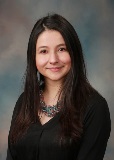
Jimena Ibagon is a Ph.D. student in the Stein Monogastric Nutrition Laboratory at the University of Illinois at Urbana-Champaign. She completed her B.S. degree in Animal Science from Universidad Nacional de Colombia. In 2020, she became a visiting scholar at the Stein Monogastric Nutrition Laboratory, where she conducted animal experiments and laboratory analyses to determine net energy of feed ingredients fed to swine. Later, she joined the master’s program in the Animal Sciences Department at the University of Illinois. Her master's thesis focused on determining the nutritional value of field peas from different origins and with different particle sizes when fed to growing pigs. She defended her master's thesis in 2023 and is currently working on her Ph.D. Her current research focuses on determining the impact of different feeding programs on N and P excretion and greenhouse gas production. Jimena has published four peer-reviewed manuscripts and six abstracts.




